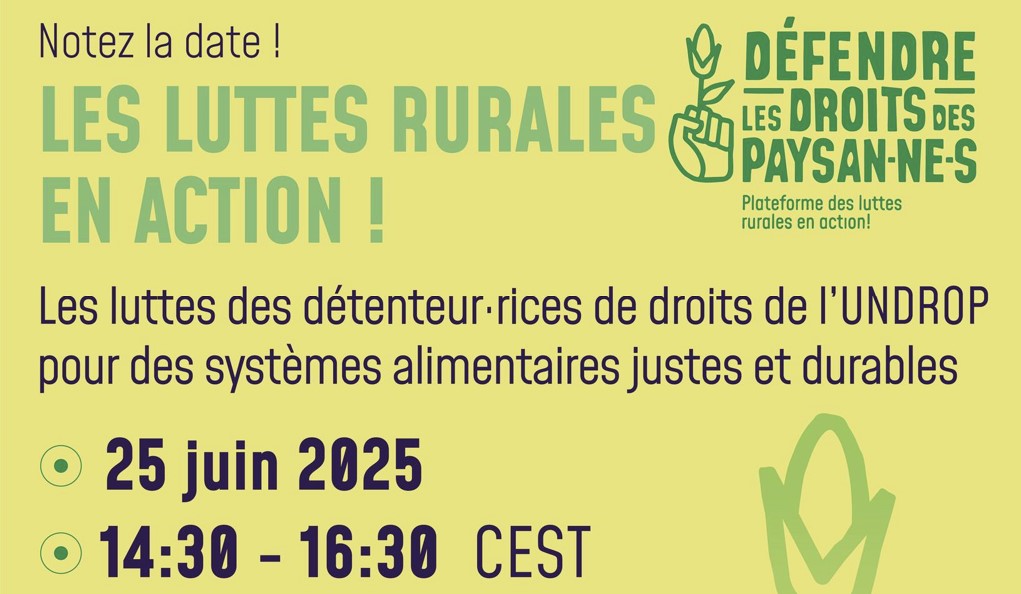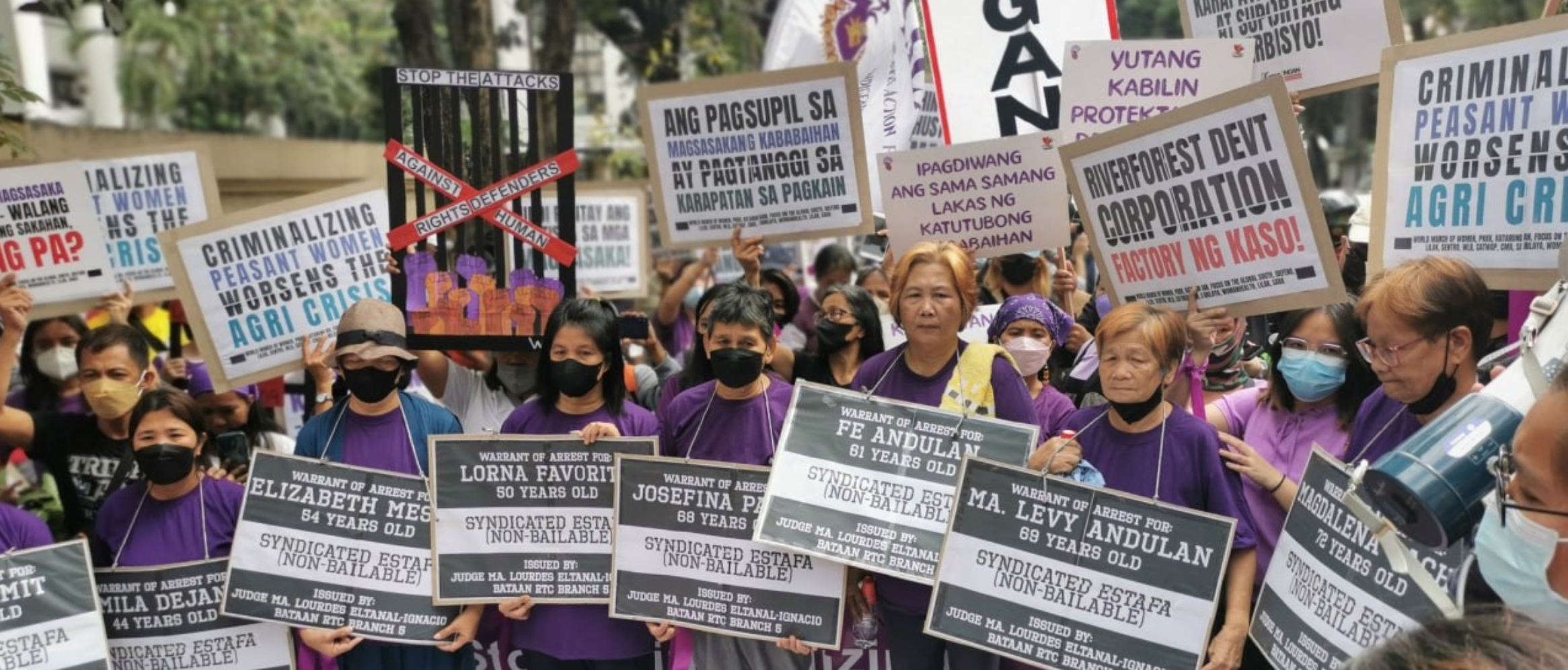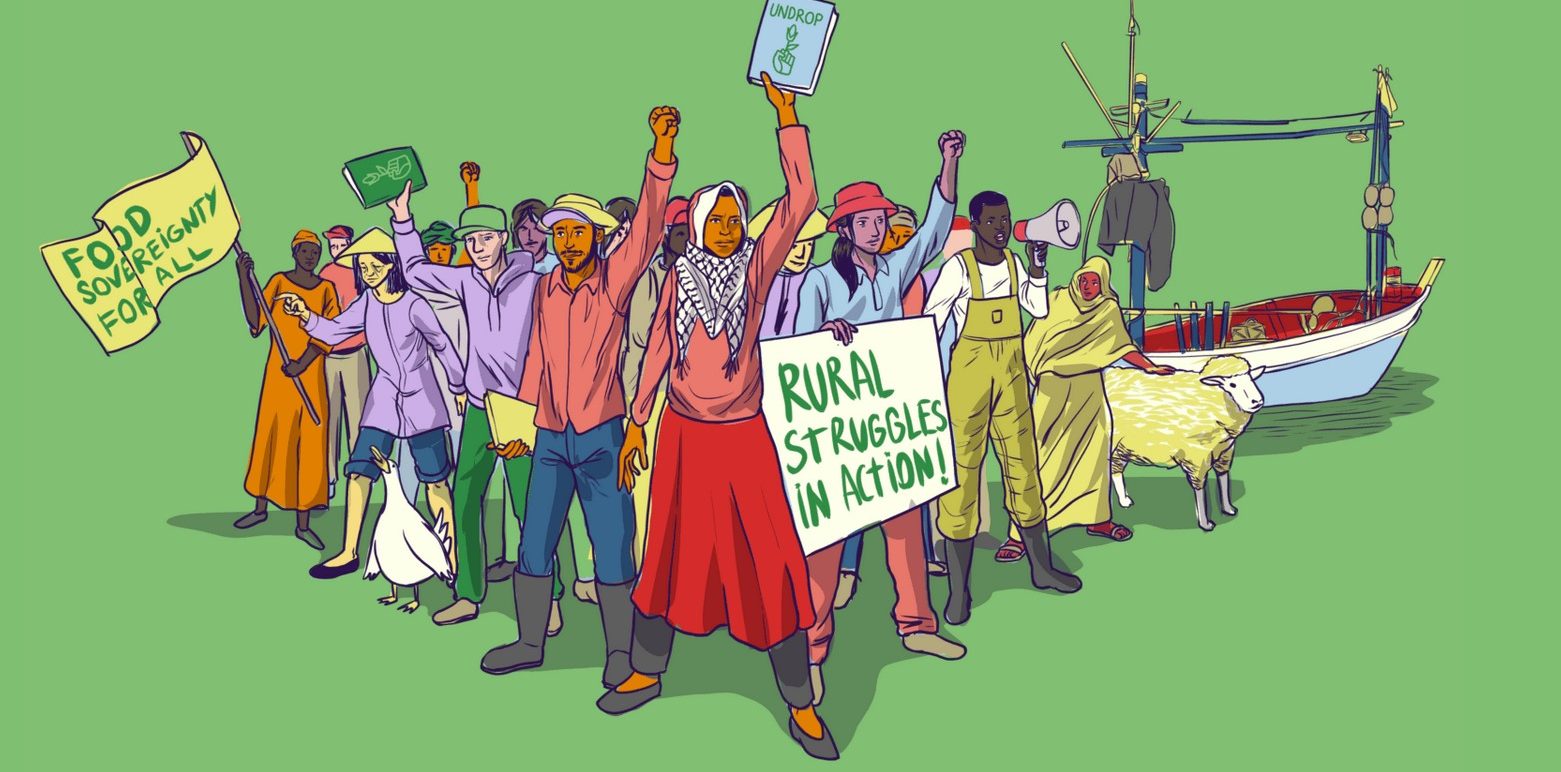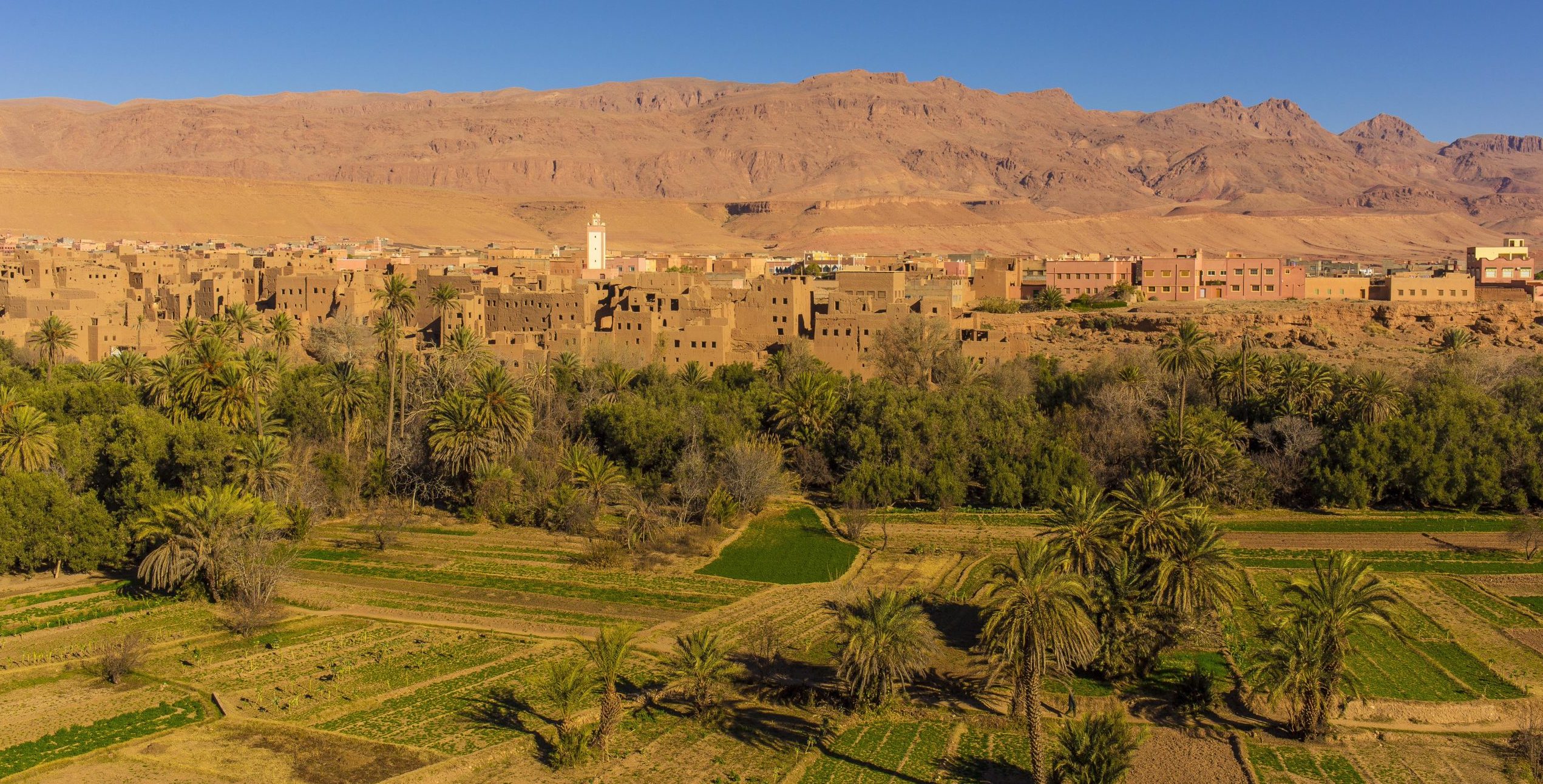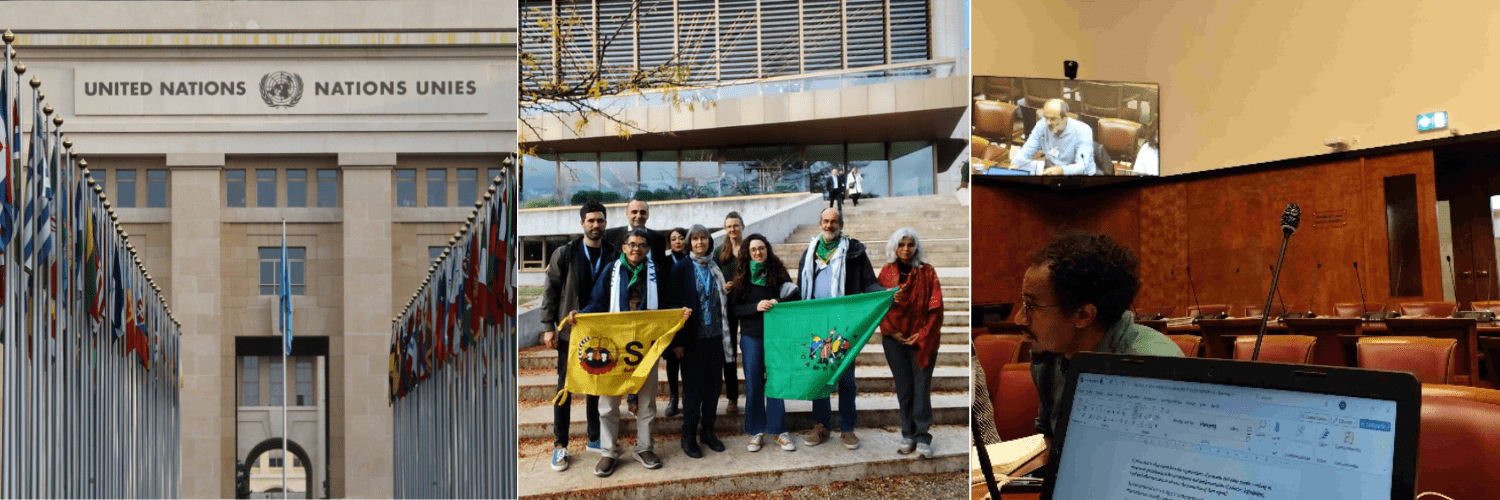At the global level, there are currently some 1.2 billion peasants and together with their families they represent one third of humanity. In absolute terms, there are more peasants today than ever before in history.
Peasants and other rural workers are key to food sovereignty and the realization of the right to food, in particular in developing countries where they provide up to 80% of the food consumed at the local level.
Peasants play a key role in the fight against climate change and the conservation of biodiversity
Yet peasants and other people working in rural areas are among the most vulnerable and discriminated-against group. They are victims of multiple violations of their human rights and suffer disproportionately from hunger and poverty. 80% of those victims of hunger in the world live and work in rural areas.
The CETIM works for several years in favor of the rights of peasants. lt provides its support to organizations representing peasants and other rural workers in the Global South for the access to the UN human rights protection mechanisms. The CETIM is also strongly involved to their sides in the campaign for the adoption of a United Nations Declaration on the rights of peasants and oher people working in rural areas, offering its support so that they are able to participate in the negotiations and present their proposals.
A Declaration on the Rights of Peasants
On 17 December 2018, the United Nations adopted the Declaration on the Rights of Peasants and Others Working in Rural Areas. Alongside La Via Campesina, CETIM was strongly involved in the process that led to the adoption of this indispensable tool. In particular, it offered its support to peasants to enable them to participate in the negotiations and to make their proposals heard.
The adoption of the Declaration is a historic moment. It is the result of a 17-year struggle for the recognition of the rights of this particularly vulnerable population. If respected and implemented, this instrument will be useful, not only for peasants, but for humanity as a whole.
One year after the adoption of this indispensable tool, a joint declaration was signed by nine special rapporteurs and experts and four members of the UN treaty bodies. This document stresses that farmers must participate “in all decision-making processes that affect their lives, lands, resources and livelihoods” and repeatedly urges states to play a key role in implementing the Declaration.
In October 2023, the United Nations Human Rights Council, with an overwhelming majority of Member States in favour, took another historic step. It voted in favour of Resolution 54/9 to create a follow-up mechanism to the Declaration. A Working Group of experts is now responsible for promoting and implementing the Declaration.
Download for free the e-book edited by CETIM “The UN Declaration on the Rights of Peasants“
Protect Peasants’ Rights Campaign
Access to justice for peasants
Training sheets on peasants’ rights
New date confirmed for our Webinar! Wednesday 25 June 2.30 pm to 4.30 pm (CEST) Don’t miss it! Let’s strengthen the fight for rural peoples’ rights! For reasons of digital security, advance registration is required. Further information and registration at: tinyurl.com/y7aexhs8
Continue reading
On the occasion of the International Day of Peasant’s Struggles, CETIM has signed this joint declaration by several peasant and international solidarity organizations. April 17, 2025 Today, we join hands with peasants, landless rural workers, small-scale food producers, Indigenous Peoples, and other peoples working in rural areas around the world to mark the International Day […]
Continue reading
WEBINAR RURAL STRUGGLES IN ACTION! UNDROP’s rights holders fight for sustainable and just food systems Where? Online. Link: click here for the Zoom link When? Tuesday, May 6, 2025, 2.30pm CEST Since its creation, the website “Defending Peasants’ Rights. Platform of Rural Struggles in Action!” has organized an annual webinar open to the general public. […]
Continue reading
PRESS RELEASE Geneva, 18th March 2025 – The National Federation of the Agricultural Sector (FNSA, Morocco) and CETIM have filed a complaint with international human rights protection mechanisms to denounce the consequences of Law 97-15. This law, adopted by the Moroccan Parliament on 5th February 2025, imposes heavy restrictions on the right to strike, particularly […]
Continue reading
From the 21st to the 25th of October 2024, the United Nations Working Group on the Rights of Peasants and Other People Working in Rural Areas (the Working Group) held its second session in Geneva. The Working Group on peasants was established in October last year when the member states of the UN Human Rights […]
Continue reading
1
2
3
…
38
Next »
